Publications
Journal der Künste 23
Published three times a year (German/English), available free of charge
ISSN (Print EN) 2627-2490
not yet published
The first issue of Journal der Künste under the presidency of Manos Tsangaris and Anh-Linh Ngo focuses on artistic freedom. Texts by Lena Gorelik, Ralf Michaels, Carsten Wurm and others as well as a conversation with Kristóf Kelemen and Gergely Nagy from Hungary address the defence of artistic autonomy from various perspectives. Further contributions provide insights into the genesis of the current exhibitions and the work of the archive.
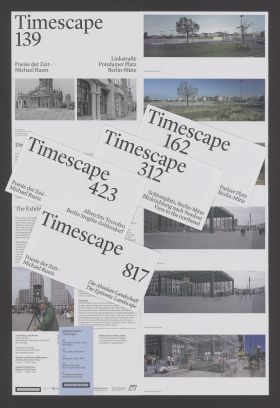
Michael Ruetz Timescapes Poetry of Time
Akademie der Künste, Berlin 2024
German/English, 45 ill.
5 photo booklets
ISBN 978-3-88331-258-3
Best.-Nr. 6049
€ 15
How can time and impermanence be rendered visible, and how can the upheavals and changes taking place in a society or an urban space be documented? Few other artists have concerned themselves with these questions to the extent that Michael Ruetz has. In the mid-1960s, he embarked on a large-scale photographic study to observe the transformation of natural and urban environments in Germany and Europe. Ruetz has recorded the metamorphoses in photographic series made up of images inventorying the changes and snapshots taken over decades. He calls them Timescapes.
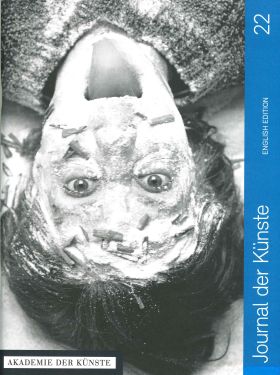
Journal der Künste 22
Published three times a year (German/English), available free of charge
ISSN (Print EN) 2627-2490
The Journal der Künste, issue 22, bids farewell to Jeanine Meerapfel and Kathrin Röggla, the Akademie’s former president and vice-president. It explores the possibility of utopias with Matěj Spurný, Eva von Redecker and Iris ter Schiphorst and the political shift to the right in Germany with Thomas Krüger, Christina Clemm and Holger Bergmann. The 2023 Kollwitz Prize recipient, Sandra Vásquez de la Horra, shows works from her oeuvre; and a Carte blanche designed by Wolfgang Tillmans is featured. The archive includes the stories behind a photomontage by István Szabó and newly acquired drawings by George Grosz, as well as insights into Jürgen Flimm’s director’s workshop.
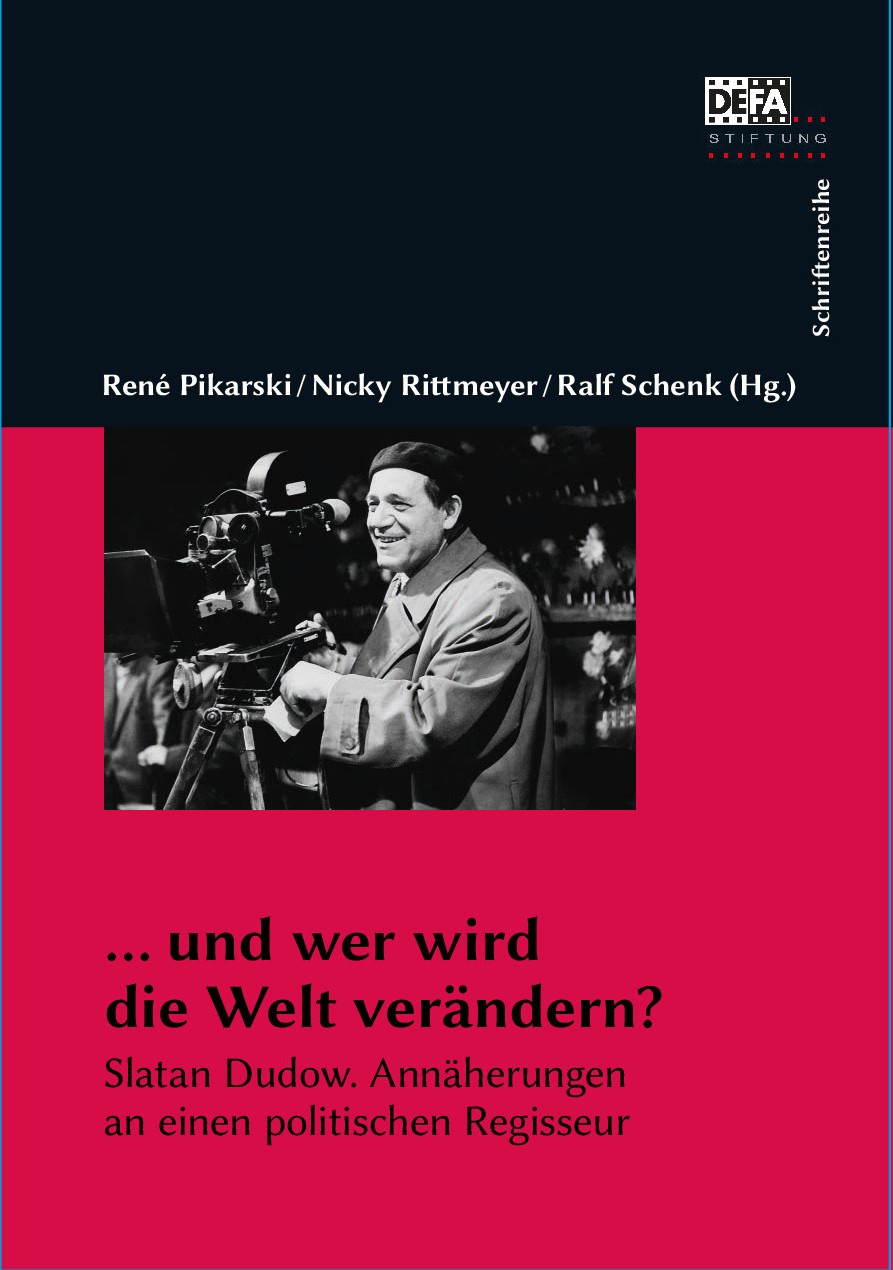
„…und wer wird die Welt verändern?“. Slatan Dudow. Annäherungen an einen politischen Regisseur
René Pikarski / Nicky Rittmeyer / Ralf Schenk im Auftrag der DEFA-Stiftung Berlin (in Kooperation mit der Akademie der Künste Berlin)
Bertz+Fischer, Berlin 2024
German, 688 pp.,
108 ill.
incl. 2 DVDs
ISBN 978-3-86505-425-8
Best.-Nr. 6051
€ 43
Slatan Dudow (1903–1963) is considered one of the pioneering left-wing representatives of Weimar Cinema and filmmaking in the GDR. Some of his works have entered the canon of German and international film history. Others shaped cinema’s orientation at the time. This comprehensive anthology compiles new research findings, reminiscences, and accounts from more than 30 authors. The extensive Slatan Dudow Archive at the Akademie der Künste was assessed for the first time for this publication.
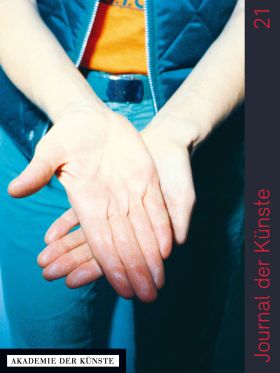
Journal der Künste 21
Published three times a year (German/English), out of print
ISSN (Print EN) 2627-2490
The 21st issue with a new design focuses on questions of sustainability: with texts and photo series on “The Great Repair” by Anh-Linh Ngo, Zara Pfeifer and Mierle Laderman Ukeles, among others, and literary contributions by Ulrike Draesner and Cécile Wajsbrot. Also: conversations with Luc Tuymans and Gundula Schulze Eldowy, short essays by Anna Hetzer, Moshtari Hilal et. al. as well as news from the Archives.
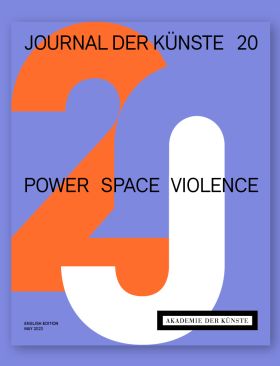
Journal der Künste 20
Published three times a year (German/English), available free of charge
ISSN (Print EN) 2627-2490
Accompanying the current exhibition, the 20th issue focuses on the context of power, space, and violence. Other topics include exile, artistic freedom, the broadcasting crisis, and the role of the arts in the revolutionary process in Iran. With contributions by and with Regina Stephan, Monica Bonvicini, Joanna Piotrowska, Eszter Salamon, Philipp Krüpe , Mina Keshavarz, Tanasgol Sabbagh, Matthias Lilienthal, Meron Mendel, Senthuran Varatharajah, Dominic Graf, Gerhart Baum, Sibylle Hoimann and Annett Gröschner, among others.
To order the printed version: info@adk.de
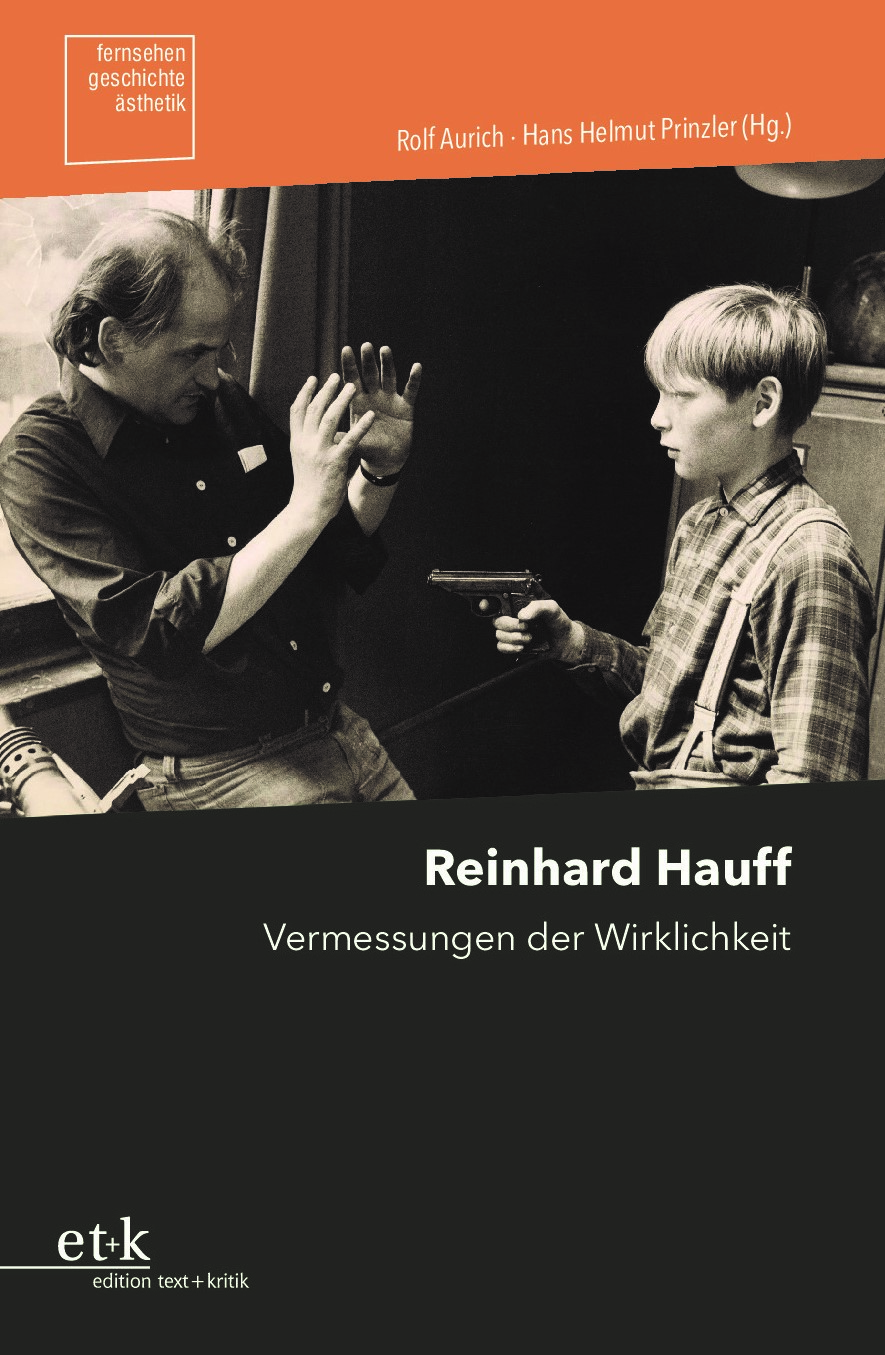
Reinhard Hauff. Vermessungen der Wirklichkeit
Rolf Aurich, Hans Helmut Prinzler on behalf of the Akademie der Künste and Deutsche Kinemathek (eds.)
Reihe „Fernsehen. Geschichte. Ästhetik“, Bd. 5, edition text + kritik, München 2021
German, 204 pp.,
100 ill.
ISBN 978-3-96707-413-0
Best.-Nr. 6047
€ 29
Reinhard Hauff turned to social reality after his start in television entertainment with documentary works and films such as Die Verrohung des Franz Blum (1974). His greatest successes came with the courtroom drama Stammheim (1986) and the musical Linie 1 (1988). This first monograph on Hauff is published as the fifth volume in the series “Fernsehen. Geschichte. Ästhetik.”. An extensive biographical interview is supplemented by essays by Egon Netenjakob and Rolf Aurich as well as an interview with cameraman Wolfgang-Peter Hassenstein.
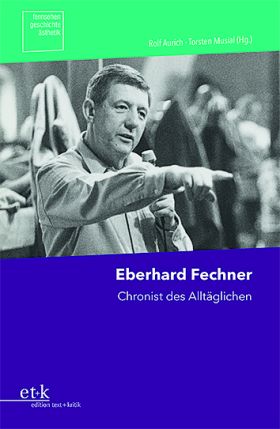
Eberhard Fechner. Chronist des Alltäglichen
Rolf Aurich, Torsten Musial, Akademie der Künste, Deutsche Kinemathek - Museum für Film und Fernsehen
edition text + kritik, München 2019
German, 212 pp.,
41 ill.
ISBN 978-3-86916-868-5
Best.-Nr. 6043
€ 29
Eberhard Fechner was a genre-defining documentary filmmaker working in West German television. The fourth volume in the series Fernsehen. Geschichte. Ästhetik is dedicated to this chronicler of everyday life. In their essays, Rolf Aurich, Matthias Dell, Jan Gympel and Sven Kramer explore aesthetic aspects of his films, his unfinished film projects, his interview techniques and his commitment to the idea, initiated in the Akademie der Künste, of a German media library, which exists today as the Mediathek Fernsehen in the Deutsche Kinemathek.
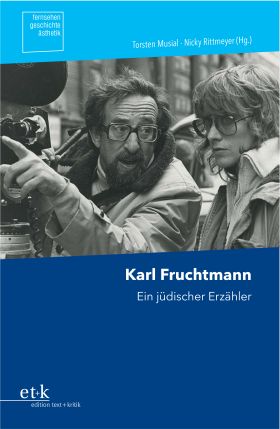
Karl Fruchtmann
Ein jüdischer Erzähler
Torsten Musial, Nicky Rittmeyer (eds.)Series "Fernsehen. Geschichte. Ästhetik" [Television. History. Esthetics], Vol. 1, Akademie der Künste, Deutsche Kinemathek – Museum für Film und Fernsehen (eds.)
edition text + kritik, Munich 2019
German, 240 pp., 43 ill.
ISBN 978-3-86916-751-0
Best.-Nr. 6042
€ 29
Karl Fruchtmann's television movies pursue fundamental issues of human oppression, ostracism and violence committed against fellow human beings. They are profoundly influenced by Fruchtmann's experience in National Socialist concentration camps, and are testaments to his lifelong fight not to let the Shoah be forgotten.
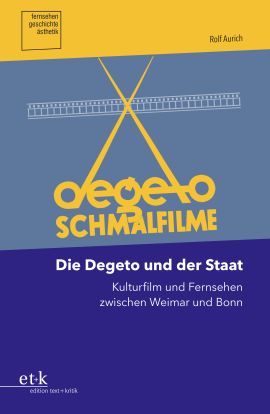
Rolf Aurich
Die Degeto und der Staat.
Kulturfilm und Fernsehen zwischen Weimar und Bonn
Series "Fernsehen. Geschichte. Ästhetik" [Television. History. Esthetics], Vol. 1, Akademie der Künste, Deutsche Kinemathek – Museum für Film und Fernsehen (eds.)
edition text + kritik, Munich 2016
German, 252 pp., 18 ill.
ISBN 978-3-86916-605-6
€ 29
The "Deutsche Gesellschaft für Ton und Bild" (Degeto) was founded in 1929 to promote cultural films. The character of Degeto changed profoundly at the end of the 1950s when the ARD turned it into a central instrument of film acquisition for its television programming. Rolf Aurich, author and editor at the Filmmuseum Berlin, reviews the first three decades of Degeto's history.
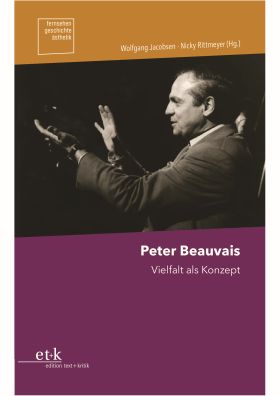
Peter Beauvais. Vielfalt als Konzept
Wolfgang Jacobsen, Nicky Rittmeyer (eds.)
Series "Fernsehen. Geschichte. Ästhetik" [Television. History. Esthetics], Vol. 1, Akademie der Künste, Deutsche Kinemathek – Museum für Film und Fernsehen (eds.)
edition text + kritik, Munich 2016
German, 216 pp., 35 b/w ill.
ISBN 978-3-86916-519-6
€ 32
In his work as a director, Peter Beauvais was a major influence on West German television for almost thirty years. In biographical and analytical contributions, Rolf Aurich, Julia Glänzel, Wolfgang Jacobsen and Nicky Rittmeyer illustrate how in all his works, whether for the theatre, opera, radio, film or TV, Beauvais pursued a notion of radical diversity in terms of themes and styles.